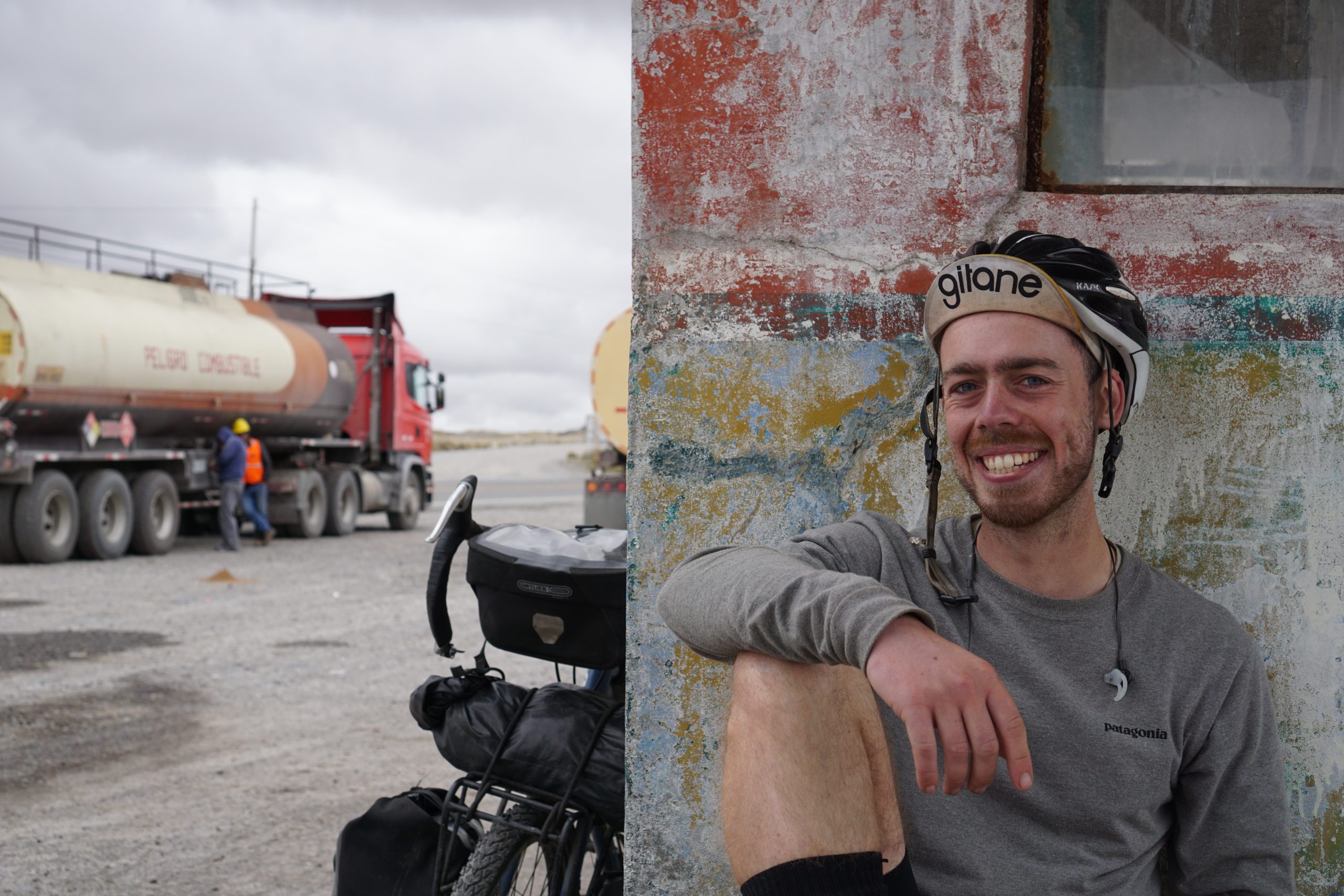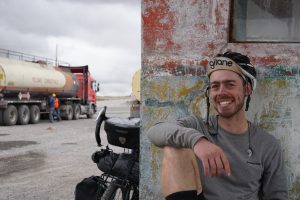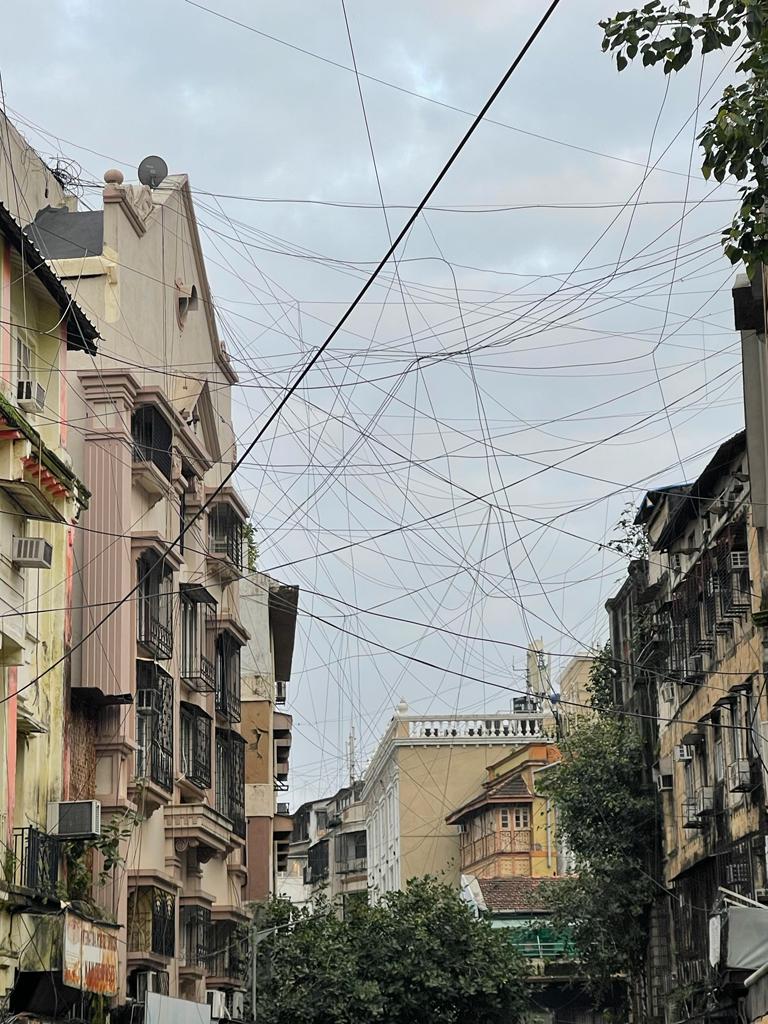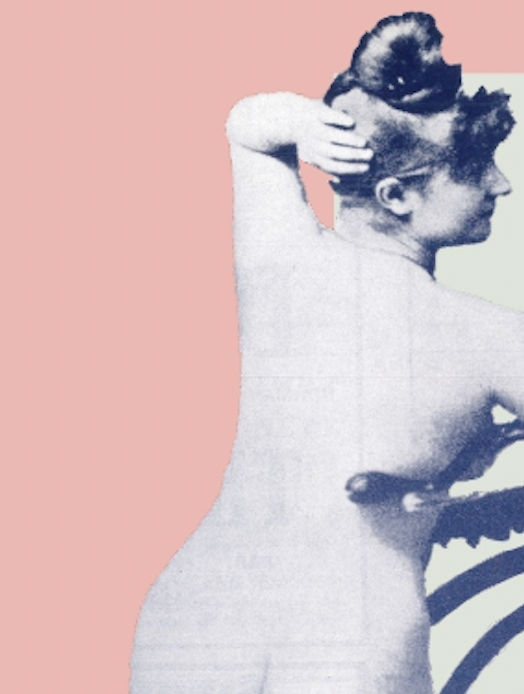
Icon of the Week: Pedr Charlesworth, The Man Behind Byke

Pedr Charlesworth is the man behind Byke (formerly Oxbikes), the business re-vamping old bikes and giving them a second life on an easy-to-use platform so that they can pick them up “anytime, anywhere”. As we become increasingly conscious of our impact on the environment, Byke is working to improve our access to sustainable travel solutions. I sat down with him to find out where it all started.
Moments before my first meeting with Pedr Charlseworth, I realise I don’t know how to pronounce his name (“Ped”? “Ped-ra”?). I also realise I don’t know what he looks like. In a panic, as the agreed-upon time arrives, I make eye contact with the first person who walks through the door and wave them over. “Hello!” I say, “Are you…?” Oh my God. Where do I go next? I settle on, “Are you Mr. Oxbikes?”
This person was not, in fact, Mr. Oxbikes. Nor, as it happens, is Pedr Charlseworth. Oxbikes is no longer, and the company now operates under the name “Byke”. “The story of Byke is an interesting one,” he tells me as he explains the shift, “as we started to try to think about how we could grow”. The name change started with the company’s expansion out of Oxford into Cambridge. “Oxbikes” was never going to work, “people aren’t going to jump on that bandwagon” (let alone that bicycle!) – that would be like setting up “a foreign actor, the rival”. For a while “Cambikes” worked as a sibling entity, but he explains, “We started to think about what we really want to be.” The company wasn’t just selling bikes to a “mainly student demographic”, but “a lot of the public too”. They imagined the flinch-inducing “Lonbikes” or “Glasbikes”, and decided they “needed a bigger umbrella”. And so Byke was born. “I believe [“byke”] actually means a hive of honeybees as well”. (It does. It is a Scottish word for a beehive.) “And so it worked perfectly for us, in that it sounds just like “bike”, but it has this community aspect.”
I ask him about the business model, which feels like a halfway point between the lawless Facebook marketplace and the increasingly old-fashioned storefront structure. For the uninitiated, Byke functions as a marketplace-like website, with various unmanned pick-up and drop-off points. You can buy and sell bikes by simply registering them via the website, which will direct you to one of Byke’s many drop-off points, “anytime, anywhere in the city”. You then receive a code to one of their locks, so that you can leave or pick up your bike without having to ever encounter another human being. But even though their system does save you from having to pick up a questionable bike from an even more questionable man in Headington (“We’ve all been there,” Pedr knowingly reassures me), where’s the sense of community?
“We do have a workshop,” Pedr explains. The workshop is an innovation that will bridge the gap between online and in-person presence. Byke also hosts “rental demos” which help create a sense of community: “There’s no better feeling than when you go to a college and you’re putting some bikes there and someone else is just taking them out and you have a chat about it.” Byke is introducing a repairs service which will hopefully increase these sorts of coincidental interactions by introducing a booking system to their website. You will be able to book a time on their website to take your bike to one of their mechanics to get it fixed – Pedr hopes this will be a practical as well as community-building development.
Even before Byke, cycling has always been a social outlet for Pedr. When he “worked in London” whilst “living in a village” he “needed to cycle to get an earlier train.” He tells me, “That’s when I bought my first road bike, which was second-hand on eBay … It was a red Raleigh.” From there, he says, “It kind of escalated when at university in my final year. I heard this guy on the bus telling his friend … about a holiday he went on cycling around Norway.” Pedr was inspired. “That sounds really cool. Norway’s a bit hilly, though. My Raleigh didn’t have many gears on it. So, I booked a flight to Sweden, and took a tent.” When he got there, he met “these three American guys – Mike, Mike, and Bill.” They had just finished their masters’ degrees, so “this was their last night before they went to work”. The rest of the story sounds like an over-saturated, sun-soaked (and sometimes rain-soaked) montage in a coming-of-age film, set to the soundtrack of Queen’s Bicycle Race. Or maybe The Smiths’ This Charming Man. “Welcome to Paris”, “they went to hospital”, “we saw Germany win the World Cup in Hamburg” …
Pedr did something similar the following summer, “I went to India, and India became Australia … and by the time I got to Sydney, I knew I couldn’t stop … I ended up going to New Zealand after Sydney, and then from there I went to Lima in Peru.” Unfortunately, the pandemic stopped Pedr in his tracks, so he came home and applied for a DPhil. “But the trip has never been finished … It was the single biggest challenge of my life, and the most inspirational period of my life … It’s an ongoing project, and it will be finished.”
Cinematic and uplifting as this all is, as I’m jolted back to the present, I realise I don’t even know what Pedr studies. “So, I do … Material Science. My work now is specifically lithium ceramics for nuclear fusion applications … Fusion has been this brainchild of physics for seventy to eighty years, and there’s always the joke that it’s thirty years away, that you can have this energy in x number of years. But Oxford really is like a nexus. It’s a hub for fusion energy and fusion research companies. So I’m partially sponsored by a fusion start-up company … to see if we can make a viable way for basically limitless energy production.” The sustainable focus of Pedr’s DPhil is analogous to the mission of Byke, in so far as Byke is “fundamentally a business with a mission to provide sustainable travel to people at affordable prices”. It is essentially “a green initiative” to both reduce emissions by replacing cars and reduce waste by re-purposing old bikes. He is adamant that “new bikes aren’t necessarily needed”.
Although the main faces of the business are based between Oxford and Cambridge, Byke is also “trialling in London at the moment”. I wonder if Oxford and Cambridge are uniquely placed – both student-filled, cycle-safe cities – and how Byke can make the jump beyond them. “You’re right,” Pedr says, “Oxford and Cambridge are distinct and unique; they have a college system as well, and if you can find your way into the college system, you can embed yourself within that.” One of Byke’s largest sources for second-hand bikes is the “colleges”. For example, St John’s in Oxford: “When they cull the bikes at the end of the year, we get first dibs on those bikes … So, if they give us a good bike, we pay them money which goes towards their JCR.” I am reminded of the “community aspect” Byke is keen to build, and realise that a lot of what they do for the community actually goes on behind the scenes, when we’ve all disappeared back home for the vacation. It’s not just the colleges who benefit, either: “Any bikes that we get that we think are actually just too far gone … they go to an initiative called “Recycle My Cycle”, where they take the bikes to prisoners, and they teach them how to fix them up and strip bikes off.”
The vision for London and other cities is somewhat different. Whilst the community links behind the business here in Oxford are very specific, what Byke has built is a universal online transport platform for bike rentals. The monopoly of companies like Uber, Deliveroo, and Airbnb which provide instantaneous access to short-term amenities illustrate just how powerful a model this is. If Uber is the go-to online platform for finding a taxi, Deliveroo for food, and Airbnb for accommodation, Byke could be exactly that for bikes. It seems like a natural progression. These companies and their way of making things accessible have worked their way through the basics of Maslow’s hierarchy of needs (shelter; food; transport) – why not add another for transport that is environmentally friendly? “What if you want a bike for two days, three days, and you want to lock it up wherever you go? … I see something … where people rent their own bike out in the same way as on Airbnb you rent your house out.” Already my mind is whirring, wondering if I could make some extra money by renting out my bike to tourists in Oxford when I’m not here during vacations. Whilst Airbnb may be contributing to ruinous rental markets in the world’s major cities, the stakes for renting out bikes seem much lower. The idea is a potentially smart and exciting one.
Whilst the dominance of Airbnb and co. prove the viability of Byke’s business model, I wonder what Pedr thinks about the viability of cycling more generally. On the one hand, it seems obvious that cycling is the answer to cheap and sustainable travel in the face of the climate crisis, but I can’t help but think of the power of the car lobby, public skepticism over eco-friendly measures such as the ULEZ, or outright hostility from motorists to the retrofitting of urban roads with cycle lanes. “I’m definitely optimistic,” Pedr confirms, “but what I do feel about the pushback, I think it’s just absolutely inevitable.” “If there were more pennies in the pocket of the general public, this wouldn’t be such an issue.” For Pedr, cycling in and of itself is not in jeopardy. “I believe bikes can totally change the world. And it’s a solution that we already have and have had for a long time.” Cycling is a “culture” and a mindset. He reminds me that “in the Netherlands”, where cycling is inextricable from their culture, people “are healthier and live longer”, and hopes that cycling will be a cheap and efficient way for some Brits to replace their “gym membership”. Setting aside the humongous environmental benefits, cycling “provides a vehicle to improve people’s health and mental wellbeing, which are two of the biggest things that we face right now”. He reiterates that cycling has the “ability to change lives”. “For me personally, it’s totally changed my outlook on the world and the things I do, the friends I have.”
His passion and belief in bikes are contagious, and I realise Pedr really is so much more than Mr. Oxbikes: he’s Mr. BIKE (or, Mr. Byke, if you will). But you can call him Pedr. That’s pronounced “Ped-ur”.
Byke has kindly partnered with the Isis to provide a discount code to its readers. If you scan the QR code below it will take you to Byke’s website, where you can browse bikes for sale and rental. Then you can enter our promotional code – ISISMAG24 – at the checkout, and Byke will apply a discount on your items.
Words by Helen Edwards. Photo provided by Pedr Charlesworth.








